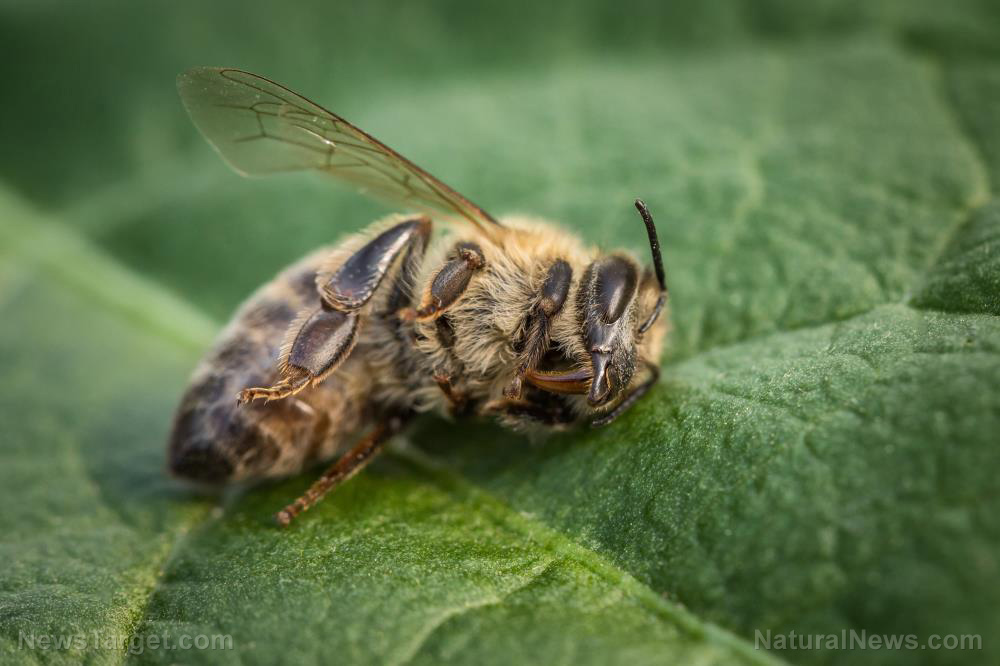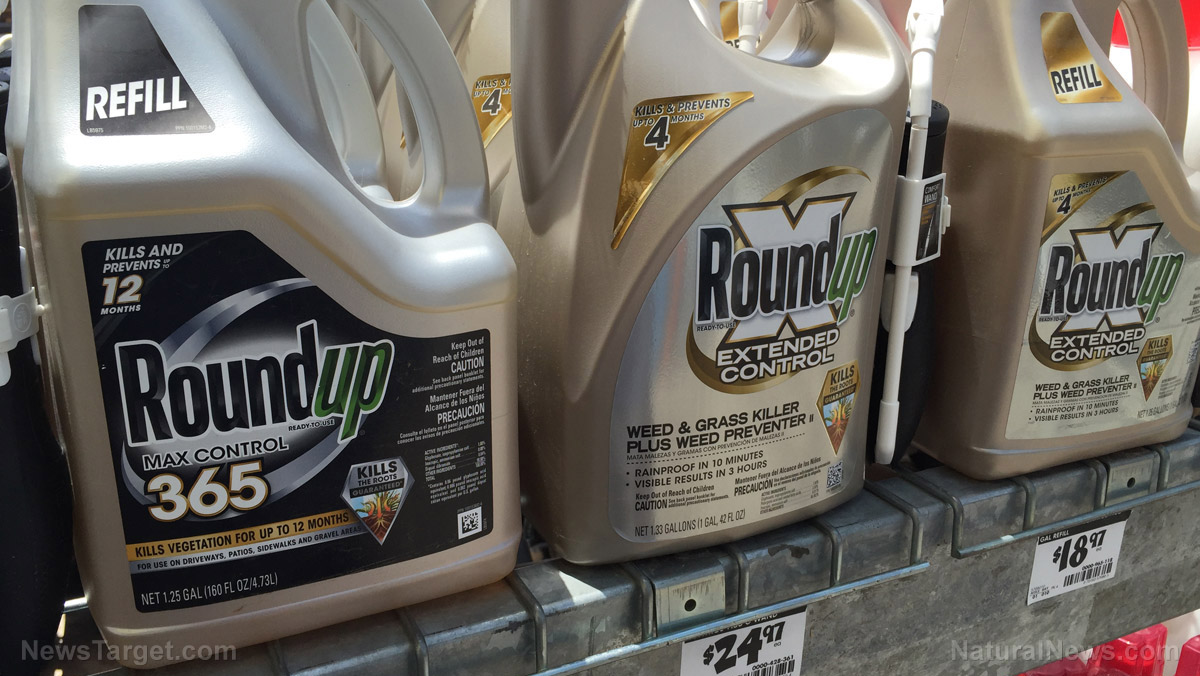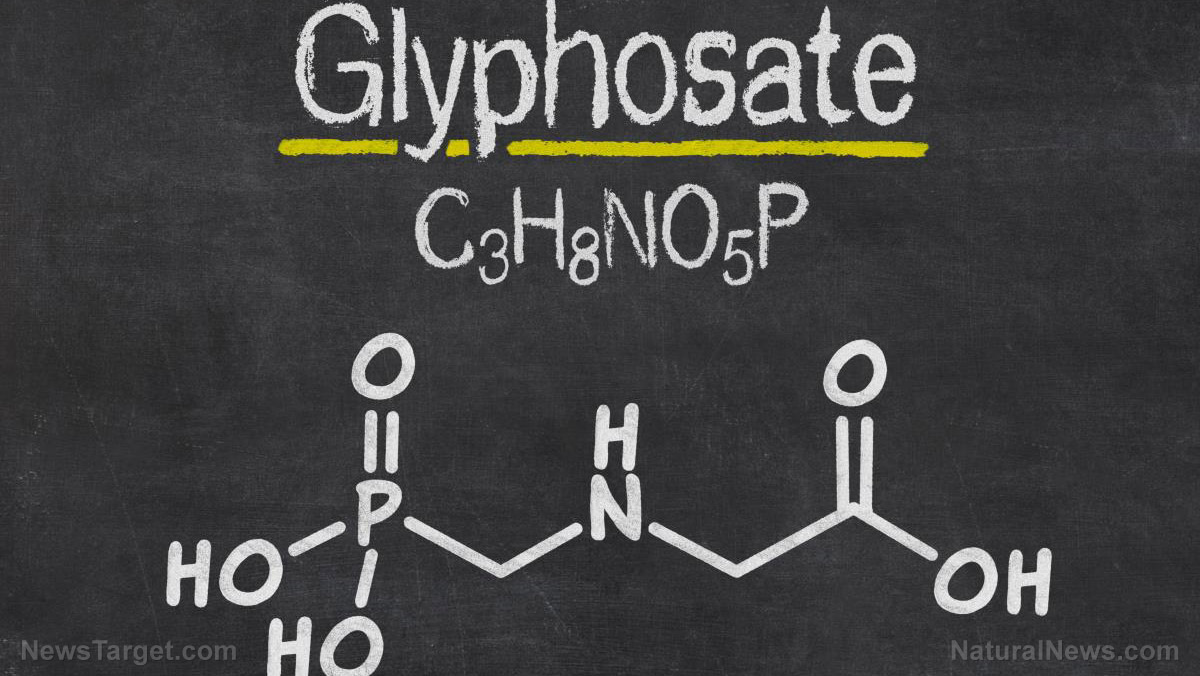Around 140,000 plaintiffs allege they developed non-Hodgkin’s lymphoma from exposure to Roundup herbicide
08/31/2022 / By Mary Villareal

Despite German chemical firm Bayer insisting that the Roundup herbicide is “safe,” around 140,000 plaintiffs alleged that they developed non-Hodgkin’s lymphoma (NHL) from exposure to it.
Among the plaintiffs is 72-year-old Mike Langford, who was diagnosed with NHL in 2007. Despite multiple rounds of chemotherapy and a stem cell transplant, he suffered through five recurrences of his cancer. Langford is now struggling with neuropathy in his legs as a result of the chemotherapy, and tests have shown that his cancer is back again.
“I’ve had it so long. I’m very angry,” Langford lamented as he held back tears. “The future doesn’t look promising.”
In July, a San Francisco judge ruled that Langford is entitled to a speedy hearing of his claims by virtue of his dismally poor health. His trial is now set for Nov. 7 in the San Francisco Superior Court. Aside from Langford’s trial, multiple trials are underway in different states such as Missouri, Arkansas, Arizona, Florida and others.
For the plaintiffs’ lawyers, the new trials mark a renewed effort to ensure that a cancer warning is added to Roundup’s label, if not force it off the market. It also serves as a milestone in their seven-year legal battle with Monsanto, which the Leverkusen, Germany-based Bayer acquired for $63 billion in 2018.
Immediately after acquiring Monsanto, Bayer lost three costly cases linked to its subsidiary’s Roundup herbicide. Since then, it has spent the last few years trying to settle majority of the cases and paying cancer patients and their families to avoid lengthy trials. These efforts have set the company back by more than $16 billion. (Related: Monsanto hit with $290 million cancer liability ruling in Roundup (glyphosate) herbicide trial.)
Nevertheless, many victimized by Roundup – and its active ingredient glyphosate – declined the settlement offers. Some said that the amounts they would receive, in some cases less than $50,000, were too low to make up for the suffering that cancer caused them.
Bayer doubles down on Roundup’s safety
Bayer CEO Werner Baumann said in an Aug. 4 call with investors that the company was making good progress in putting major litigation behind. He cited victories in the last four Roundup trials Bayer faced, following its loss in three major lawsuits.
The head of the chemical firm added that Bayer has so far successfully settled, or otherwise “disposed of,” about 108,000 cases. This left the company with around 30,000 cases that await resolution.
“We are sufficiently provisioned to deal with the current and also with the future cases,” Baumann reiterated.
The first glyphosate-related lawsuits against Bayer were filed in 2015, shortly after the International Agency for Research on Cancer (IARC) classified the chemical as a “probable human carcinogen.” It also found “strong” evidence for genotoxicity in both pure glyphosate and glyphosate formulations. Moreover, the IARC found a “statistically significant association” between glyphosate exposure and NHL – which Langford and the other plaintiffs now suffer from.
Despite all of these findings, Bayer insists that there is “overwhelming scientific and regulatory support for the safety of Roundup and the “strength of the science” is on its side. It also denounced the IARC scientists and their findings about glyphosate as “wrong,” adding that there is no evidence of glyphosate or Roundup causing cancer.
Visit EvilBayer.com for more updates on the Monsanto Roundup case.
Watch the video below for more information about the health dangers posed by Roundup.
This video is from the Glyphosate & GMO Guy channel on Brighteon.com.
More related stories:
Monsanto ordered to pay $87M following reckless disregard of Roundup verdict.
Glyphosate from Monsanto’s Roundup decimates microbes in soils and the human gut – new science.
Sources include:
Submit a correction >>
Tagged Under:
This article may contain statements that reflect the opinion of the author
RECENT NEWS & ARTICLES
COPYRIGHT © 2017 PESTICIDES NEWS




















